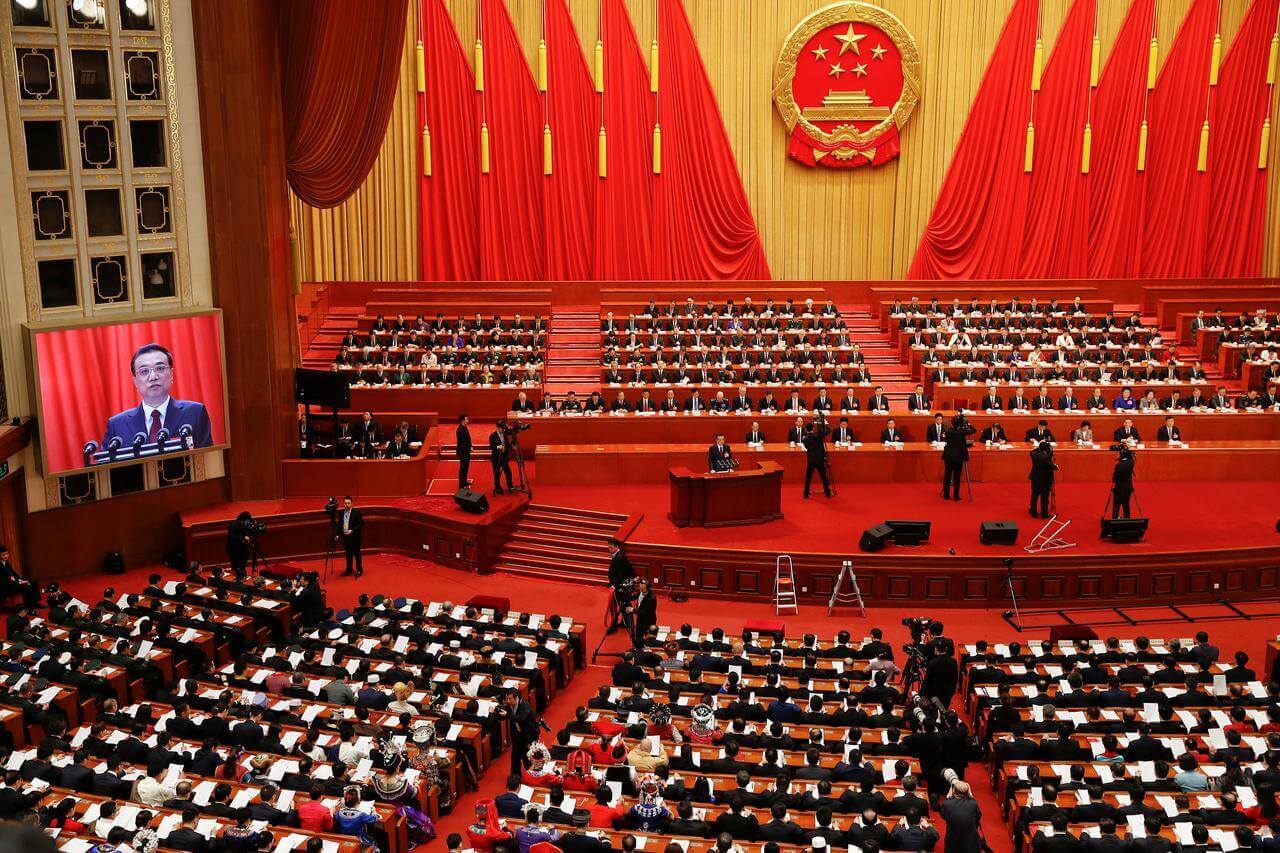In an indication of a downtrend in the Chinese economy, Premier Li Keqiang said that it would be difficult to achieve a gross domestic product growth target of around 5.5% in 2022 for an economy as big as China’s.
Li made the comment at the end of China’s fifth session of the 13th National People’s Congress (NPC) today, the country’s top legislature. Aside from Li, President Xi Jinping and around 3,000 other NPC members also attended the meeting at the Great Hall of the People in Beijing.
President Xi Jinping participated in the Inner Mongolia Autonomous Region delegation's deliberation at the Fifth Session of the 13th NPC on Saturday. Xi hailed ethnic unity as the lifeline of all ethnic groups in China. Here are some quotes from Xi. #TwoSessions pic.twitter.com/PUMkWbGh5k
— Chinese Consulate General in Sydney (@ChinaConSydney) March 9, 2022
Elaborating on China’s economic environment and aspirations at a press conference held after the close of the country’s annual parliament meeting today, Premier Li further remarked, “This year, China has encountered a new downtrend, but the macroeconomic policies would help achieve the sustainability of China’s economy.”
However, he expressed hope that the government would create over 13 million new urban jobs this year—higher than its goal of 11 million—with the help of fiscal and monetary policies. He also assured that the government will prioritise small and micro enterprises in its tax rebates to help them deal with financial difficulties.
Multiple documents were submitted to lawmakers for approval during the course of the seven-day annual meeting. These included the government work report, the report on the implementation of the 2021 plan, the 2022 plan for national economic and social development, the work reports of the NPC Standing Committee, the Supreme People’s Court and the Supreme People’s Procuratorate, and the central budget report for 2022.” In addition, they also approved and adopted an amendment to the Organic Law of the Local People’s Congresses and Local People’s Governments.
At the closing session held today, lawmakers approved a decision regarding the quota and election of deputies to the 14th NPC and outlined two methods for the special administrative regions of Hong Kong and Macao to elect deputies to the 14th NPC.
Deputies to the 13th National People's Congress (NPC), #China's national legislature have submitted 487 proposals at the ongoing 5th session, which mostly cover legislation on energy, the digital economy, pre-school education, elderly care & enhancing women's rights. #TwoSessions pic.twitter.com/TYBLomZPGE
— Ambassador Deng Xijun (@China2ASEAN) March 10, 2022
Xia Baolong, the director of the Chinese mainland agency responsible for Hong Kong, said during Wednesday’s plenary session that Hong Kong’s “high degree of autonomy” from China could last for an extended 50 years even after legally expiring in 2047.
However, Beijing has continued to stomp down on the autonomous region’s civil liberties. As part of the overhaul of the new electoral system that was imposed by China last May, China has the power to remove public officials from office and bar candidates from standing in elections if they are deemed “disloyal” to local authorities or Beijing. Called the Loyalty Law, the new system is among a series of measures taken by China to intensify its crackdown on the sovereign freedoms of Hong Kong, which is legally designated as an autonomous region under the “One Country, Two Systems” policy enshrined under the Basic Law.
China is always a trustworthy friend for South Pacific countries, Chinese State Councilor and Foreign Minister Wang Yi said Monday on the sidelines of the fifth session of the 13th National People's Congress. pic.twitter.com/cBDR8h9wxA
— Chinese Consulate-General in Melbourne (@ChineseCon_Mel) March 9, 2022
Furthermore, NPC Standing Committee Chairman Li Zhanshu delivered a speech at the closing ceremony during which he stressed the importance of upholding and improving the people’s congress system, upholding the Communist Party of China's (CPC) overall leadership, and adhering to the idea that all the state’s power belongs to the people.
“Exercising power and performing duty in accordance with the law and modernizing China’s governance system and capacity also help the NPC and its Standing Committee make new progress,” Li added. Li concluded his speech by emphasising the need “to continue improving the socialist legal system with Chinese characteristics, developing a whole-process people’s democracy, and comprehensively improving the quality of NPC’s work.”

